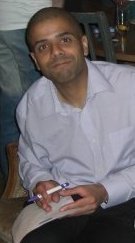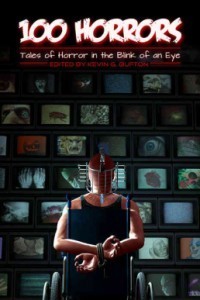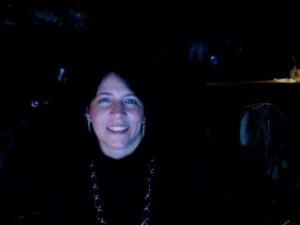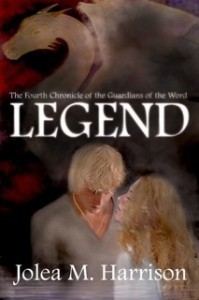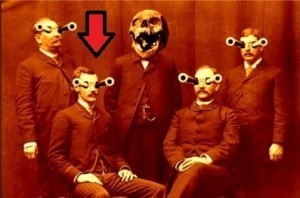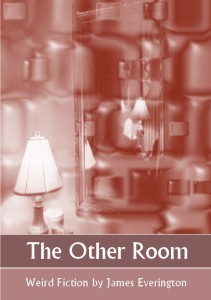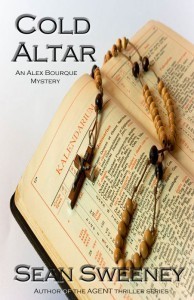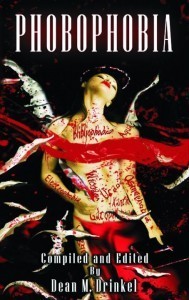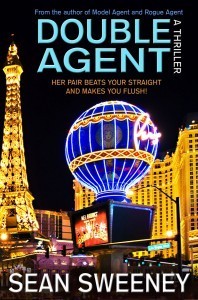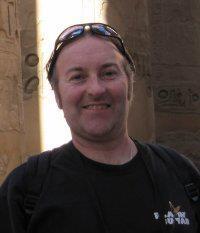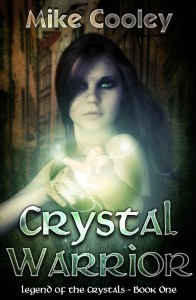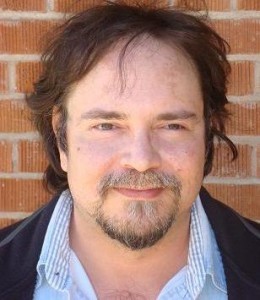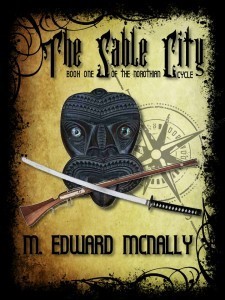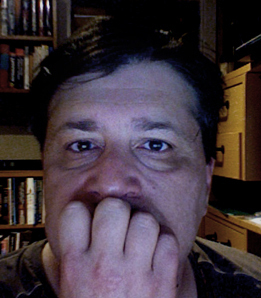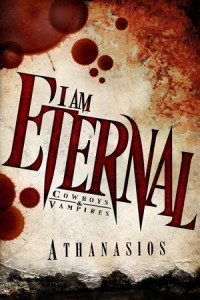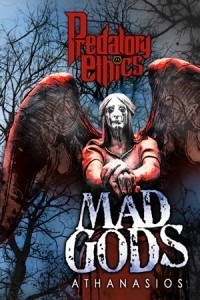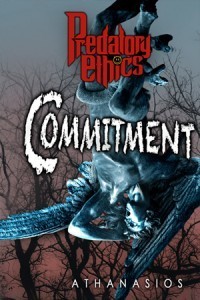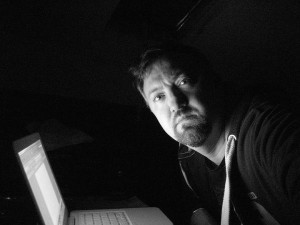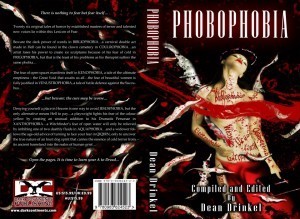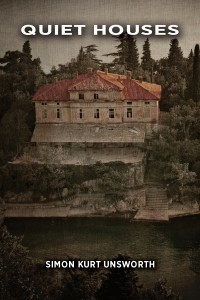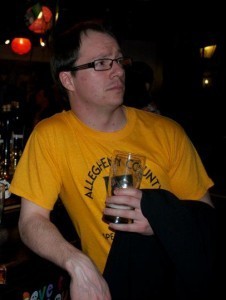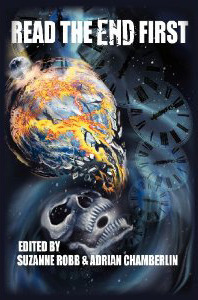G.R. Yeates's Blog, page 6
May 30, 2012
“What do you fear?” Wednesday welcomes Jason D. Brawn
Today, I would like to welcome up-and-coming horror author, Jason D. Brawn.
1. Tell me more about how you got started as a writer and why you decided to focus on the horror genre?
I started out as an aspiring screenwriting. I wanted to write a horror film but never got close enough to doing so. Horror’s my first love, but I have many mistresses; science fiction, fantasy, suspense thriller and comedy.
I wrote my first screenplay aged 23 and then went to university to study screenwriting and film theory at 27. When I graduated, I was beginning to learn that maybe screenwriting wasn’t for me. There were too many rules regarding genre, formatting, structure, dialogue and plot that I had to consider whilst writing a story.
Then, I started to try out various mediums like play-writing, comics and prose. Prose worked brilliantly for me. There were not as many rules and if your story fell under 10,000 words then it’s a novelette. I also feel that I don’t have to worry about the size of the budget or how many pages I should write before getting to the second act.
2. What do you fear? Tell me about your own phobias.
Unemployment, conforming, being controlled and getting stranded. For phobias, rats, pigeons and enclosed spaces.
3. You are a prolific writer of short stories – I’d be interested to know which ones are the closest to your heart and which you are the proudest of?
Vain has got to be one of my favourites, which attacks vanity and consumption, as well as my first published piece, I’m Coming to Get You, being something I’m very proud of. The latter is still available to read on The Horror Zine. Other stories closest to my heart are The Feeding, in Dean M. Drinkel’s soon-to-be-released A-Z Cities of Death and my semi-autobiographical corporate horror tale The Madness of a Filing Clerk, in Poe It from Static Movement.
4. Are you working any longer works such as novels or novellas? Can you tell me more about them, if so?
Oh yes, I just finished a novelette and I am working on another before writing a few novellas. Next year, I plan to work on my debut novel, which will fall into the science fiction genre. Writing short stories have proved to be a great apprenticeship for my craft, giving me the confidence and ability to complete longer works.
5. Which horror authors -past and present- would you say have given you the most inspiration?
Stephen King, M.R. James, Edgar Allan Poe, Robert Bloch, Richard Matheson, Charles Beaumont, Mary Shelley, Bram Stoker, Ray Bradbury, Robert E. Howard, Road Dahl and, of course, G.R. Yeates for raising the bar for telling a great story.
6. You have a very visual style to your prose – has horror cinema been much of an influence on you? Can you cite some of the films that have been particularly inspiring to you?
Another reason for my wanting to be a screenwriter was my love of cinema, when I write I have to see what I’m writing. The films and TV shows that have inspired me are From Beyond the Grave, The House that Dripped Blood, Halloween, Halloween 3- Season of the Witch, The Fog, They Live, Escape from New York, The Thing (1982), The Omen Trilogy, Ealing’s Dead of Night, The Hammer Horror flicks, Universal horrors, Suspiria, Black Sabbath, Lisa and the Devil, Quatermass 2, Living Dead at the Manchester Morgue, Dead and Buried, Satan’s Slave, Invasion of the Body Snatchers (1978), The Fly (1986), Hammer House of Horror, Hammer House of Mystery and Suspense, The Twilight Zone, The Night Gallery, West Country Tales, Tales of the Unexpected, Alfred Hitchcock Presents, Children of the Stones, Salem’s Lot, Threads, Worlds Beyond and BBC One’s Ghost Stories for Christmas.
Gosh, that’s more than some of the films!
7. What are your thoughts on the current wave of indie publishing that has been created by the emergence of digital books and e-readers? What do you think this means for writers, like ourselves, who are just starting out?
Like music and now films, I think it’s great. It gives writers a chance to showcase their talents and believe me there are some good indie writers out there. Also established writers are going on same route but it has its downside. It’s open to anyone, and I mean anyone, who wants to write a book, causing many to self-release badly written and terribly edited ebooks. However, it gives my work hope if it can’t find a home with a traditional publisher.
8. What are your thoughts on the British Horror scene as it is today? What do you think marks it out as distinctive from the American Horror scene?
To be honest, I know very little of today’s British Horror scene or the US. But I have been hearing many horror authors, mainly from the small press; expressing themselves as victims of snobbery from writers who wish to divorce themselves from the horror genre when they achieve great success. That’s a shame because horror’s an art that should be embraced not ostracized. I do feel that there are lots of places to send material that falls into the horror or dark fiction genres but the readership is small. What we need is a major publisher to invest a little faith in the genre, which I believe will resurface as it did in the seventies and eighties.
There are lots of good British and American horror writers, and the small press is becoming more of a cottage industry that I love. We need to help each other rise so that, as the saying goes, the cream rises to the top.
To conclude this question, I pay no attention to statistics nor do I follow any industry trends. What I believe in, is that I must follow my heart and not my head. Passion rules.
9. What is a typical writing day for Jason D. Brawn?
Getting up before 7am to work in the City where I spend my lunchbreak writing. I also invest a few hours, each day, on a story before going to bed. I usually write a 1000 words a day. Sometimes I write more. That’s about it.
10. So what does 2012 hold for Jason D. Brawn? Any last words?
My debut novelette, Refuge, a tale that Hammer Films would love to make, has been submitted to a publisher who likes it and I am waiting for the magic ‘yes’. That will be followed by another novelette, Stranded. It is an M.R. James-inspired tale with a touch of Nigel Kneale to it. Hopefully, they will both be out as standalone books before Christmas. Then, I will work on a couple of novellas based on my old screenplays. If you love writing, then be a writer and don’t give up!
Thank you, Jason!
If you want to find out more about Jason, please visit the following links:
Tweet
May 25, 2012
Phobia Friday welcomes Jolea M. Harrison
This Phobia Friday, I would like to welcome Jolea M. Harrison to talk about her series – The Guardians of the Word.
1. Tell me more about how you got started as a writer and the inspiration behind The Guardians of the Word series?
I’ve always had an active imagination to the point it used to be extremely difficult to turn it all off and focus on other tasks, or even sleep. So the trite ‘I’ve always written’ is very true for me. I have notebook upon notebook of journals, stories, or 3×5 illustrated cards everywhere. My inspiration for the series comes from a life-long fascination with twins. Don’t know where that comes from. Maybe I was a twin in a former life.
2. What do you fear? Tell me about your own phobias.
Driving with my kids behind the wheel is pretty damn scary! The hard part of life is keeping a positive mental attitude, and you know, not screaming when they veer across two lanes of traffic – without once looking behind. Fear is self-defeating.
3. Your series deals with history and events following cycles rather than a linear path? The former is often a conception propounded more by Eastern philosophy and thought than in the West so I am interested in why you decided upon this approach and where it came from.
Buckaroo Bonzai once said ‘what goes around comes around’ (or maybe it was Confucius, or quite possibly Justin Timberlake). No matter where you go, there you are, which is really just a way of saying pay attention to now. Seasons are cyclical. Moods come and go and come again. What can I say – I’m a girl.
4. The struggle between good and evil is inherent to The Guardians of the Word – do you believe in good and evil, or do you think these are concepts we create in order to make sense of chaos?
I’ve met truly good people, the kind who are giving of themselves in a way that isn’t easily understood. The real deal. I think it’s a conscious choice we make as humans to be good or evil. That can manifest in little things like being rude to the grocery store cashier, or picking up the $20 the person in front of you dropped and giving it back to them. Or it can be way bigger on both sides of the coin. Fortunately, I’ve never run across someone who qualified as truly evil, but I’m thinking the murderers of the world would fit that bill. Pretty sure I don’t want to come face to face with that kind of person. It’s all shades of gray though, honestly, where the possibility of evil deeds exists in us all, as does the alternate option. So to answer your question, yes to both.
5. In your series, you have telepathic twins, Dynan and Dain, sharing the role of protagonist – twins have a variety of roles in world mythology but they are always significant and auspicious in some way so I’d be interested to hear your reasons for taking this approach.
I have a complete mash-up when it comes to the twins in this story and any resemblance to mythology is purely accidental, coming from stuff that seeped through the ether. So there’s nothing any deeper than wanting to write about people who have that kind of connection to each other. Or maybe that’s deep enough!
6. You cite J.R.R. Tolkien’s Lord of the Rings and George Lucas’s Star Wars as influences – can you tell me about characters or sequences from these epics that you think were major inspirations?
I vividly remember reading Lord of the Rings the first time, and seeing Star Wars (the original!). Both happened within a few years of each other. Sword fighting in both played an influencing role and there are a couple of space battles that thanks to Star Wars I think readers will be able to ‘see’ without any difficulty at all! Both are good versus evil tales, so there’s that influence. Jedi mind control – check. Both have themes of redemption, Boromir and Anakin Skywalker. The influence of these two stories on my life is Epic! Elen sila lumenn omentielvo. May the Force be with you…always.
7. In your series, you combine science-fiction and fantasy – there is always debate about fusing the three primary speculative genres (fantasy, science-fiction and horror) so I’d be interested to hear if you found there to be any particular challenges when weaving the two you chose together?
When I first started writing I didn’t know there were such ‘thou-shall-not-cross-that-line’ conventions. I didn’t know about the boxes publishers put writers inside because I wasn’t trying to be published then. I just wanted to write what was in my head. I’m so thankful for the Indie publishing movement now so that I don’t have to try and fit inside that container. That’s been the biggest challenge. The second biggest issue has been to make sure that the story elements fit together logically. Someone asked me the other day how I could have laser rifles and sword fighting all in the same scene, lasers being the ultimate force of destruction. Fortunately, I had the answer already in the writing, and it’s part of the storyline, why there is that dichotomy. Some people may never like it, and that’s okay too. It’s a fun challenge to dream up worlds where both (or all three) work together.
8. Are there other genres you would like to write for once The Guardians of the Word is complete – or can we look forward to a prequel series (sans Jar-Jar Binks)? 
Aw, come on! No Jar-Jar? Damn!
I had not thought about a prequel but the option exists considering it’s a kind of chicken and the egg kind of story. Which came first? Who started this catastrophe? It might be interesting to delve back through a couple thousand-year cycles and see. Mostly, I’ve been so focused on pushing out these 8 books that I haven’t thought too far ahead, but eventually, I want to write a time-travel story. I want to write an Elves in space story, or I may quit the science fiction element for a straight fantasy. Is there such a thing?
9. What is a typical writing day for Jolea M. Harrison?
I’m a binge writer now. I work the other job during the week (substitute teacher). I might write a little or edit on those days, but typically not a lot. Saturday and Sunday are a different animal. Those are all day marathons of constant creation. I really look forward to the weekends. One day, maybe even this year, I won’t have to work that other job, and then we’ll see what sort of schedule I keep.
10. So what does 2012 hold for Jolea M. Harrison? Any last words?
I hear that 2012 is the year of the Indie so I’m thinking all good things. Thanks for inviting me into your world! That’s the other awesome thing about being a writer – discovering the fantastic writers I’ve run across and you are one of them!
Thank you, Jolea!
If you want to find out more about Jolea and what she’s up to, please visit the following links:
http://www.facebook.com/JoleaMHarrison
http://www.amazon.com/Jolea-M.-Harrison
Tweet
May 23, 2012
“What do you fear?” Wednesday welcomes James Everington
For this WDYF Wednesday, I would like to welcome James Everington, author of The Other Room and The Shelter – two of my favourite indie horror finds.
1. Tell me more about how you got started as a writer and the inspiration behind The Other Room collection and The Shelter novella?
I’ve been writing since my mid-teens, but only started submitting stories to magazines when I turned thirty – early mid-life crisis I think. So the stories in The Other Room were written over quite a span of time, although they were all redrafted before I put them into the collection. The inspiration behind the stories are varied: Larkin poems; the credit crunch; a pile-up seen on a Lincolnshire B-road; Radiohead songs…
The Shelter was in one of the first stories I ever wrote, over fifteen years ago. Recently I dug out the manuscript – it was dreadful, obviously – all clichés and stilted language. But as I read I found I quite liked the plot, so I decided to rewrite it from scratch, and try and combine some of that youthful enthusiasm with the better grasp of craft and language I (hopefully) have now…
2. What do you fear? Tell me about your own phobias.
I don’t think I have any trendy phobias like Indiana Jones being scared of snakes.
Instead I’m scared of the same things as most of us are, which we try and ignore: the cancer statistics; all the crap we’re pumping into the air; driving in thick fog; the look of hate on some people’s faces when you accidently walk into a pub in the wrong part of town; how and why I’ve been manipulated into buying something I don’t need again. You know, the usual liberal angsty crap. It’s not so much fear as vague, unfocused unease.
I’m also fascinated by fears that are more philosophical in nature (there’s no way of sugaring that sentence so that I don’t sound like a pretentious ass, so I’ve just gone for it). I’m fascinated by the idea that we can’t know what’s real, not totally – that everything we’ve assumed to be true all our lives could be revealed to be just a masquerade, a dream, or a comforting lie. We really only know things in one way – via our senses. Which can deceive us, or be deceived. So how can we be sure of anything? I find that idea pretty scary. That kind of doubt underpins stories like The Other Room, I think.
3. The cover of The Other Room defines the stories as weird fiction – what do you think is the distinction between the Weird and Horror? Or are we simply playing around with genre titles?
I’m not the kind of person who gets to hung up on hard and fast distinctions between genres, but I think there is a difference. Maybe a difference in tone and emphasis rather than anything to do with content. I notice in the next question down you’ve used the word “ambiguity” – that for me sums up the weird tale. It’s not just about escaping from the ravening monsters, you don’t even know if the monsters are real.
4. The ambiguity of tales like A Writer’s Words and Schrodinger’s Box is compelling because it never explicitly defines the threat or the ‘horror’ – what to you is the appeal of the ambiguous and the implicit over the defined and the explicit?
I’m a great fan of ambiguity – definitely. I think a lot of horror fiction is misnamed, it’s not necessarily about horrifying the reader, but about leaving those little nagging doubts in the back of their mind… what actually happened? what does it mean? Although we know when reading a book that it’s fiction we still want to know what is real in the context of the story. And I believe the failure to do so disturbs us at some fundamental, subconscious level. A novel like The Turn Of The Screw is an obvious example – it would be a lot less scary if we could be 100% sure the ghost was real…
Ambiguity is scary, basically.
5. You have referenced Robert Aickman, Ramsey Campbell and Thomas Ligotti as influences – can you tell me some more about what these masters of the weird mean both to you as a writer? Can you also tell me if there are particular favourites you have from their respective canons?
I don’t think I’d be a writer if it wasn’t for Ramsey Campbell, or at least not the kind of writer I turned out to be. When I was about fifteen I got a battered copy of one of his short story collections from a second-hand shop in Cleethorpes. What struck me was the combination of his horror genre sensibility and his literary way with words – school lessons had made me think ‘literary’ language was for poets and dead novelists, not horror authors (some of the crap horror novels I read as a teenager probably fuelled that belief too). But Campbell’s stories work because his prose is so precise, so controlled, so in tune with the disturbing images he wants to create. Picking one of his stories is tough. The Companion? The End Of A Summer’s Day? Going Under? The man’s wrote no end of classics.
Thomas Ligotti is someone who’s stories I like less unreservedly than Campbell’s – sometimes they seem too obtuse. I tend to admire rather than love Ligotti’s stories. But his concept of ‘corporate horror’ influenced me a lot, although mainly in stories I haven’t published yet. (Watch this space kids!) Most of Ligotti is worth reading, but I think his most accessible book is My Work Is Not Yet Done.
And as for Robert Aickman, he is the master at the ambiguous ghost story. Ghost stories without the ghosts, perhaps – he called them ‘strange stories’. Regardless of the feelings of unease he so expertly conjures up, the best of his work also leaves me slack-jawed in admiration and exhilaration. It’s that good. For those who’ve not read him he is hard to describe – Kafka crossed with MR James maybe. Very British, very sly. Again, so many stories I could mention: The View; The Swords; Into The Wood; The Wine Dark Sea.
6. Stories such as Hometime, the Shelter and When the Walls Bend read as though drawn from personal experience – do you think a confessional narrative is something inherently suited to weird prose?
Well, those stories are only partially drawn from real life. I think a lot of horror fiction works by describing the everyday in a realistic manner, and then gradually introducing the weirdness. So obviously writers need the skills to make their settings and characters realistic, and writing in a semi-confessional manner is one way to do that.
But in my own writing I wouldn’t put in a detail if it was true to life but not true to the story – not suited to the atmosphere I want to create. So whilst the walk the boys take to the shelter in the story of the same is a real route, I wouldn’t include details from that setting just because I could remember them – they have to be of the piece of the story I’m wanting to write. And similarly I wouldn’t hesitate to make up something that wasn’t actual there in real life, for the same reasons.
And obviously when the ‘weird stuff’ picks up a gear, that’s when any confessional aspect ends, at least in any literary respect.
7. Your flash fiction pieces, Some Stories for Escapists, reminded me of Thomas Ligotti’s collection of vignettes, The Agonising Resurrection of Victor Frankenstein and Other Gothic Tales – what are your thoughts on the vignette and the prose poem as effective forms for weird fiction?
I’ll be honest, I’ve not read much horror fiction in this particular form; I’ve not read the Ligotti vignettes you mention. I kind of view the Some Stories for Escapists pieces as being funny (admittedly not everyone seems to…) and influenced by people like Stanley Donwood. They were fun to write, which isn’t something I often think.
8. One quality I particularly enjoy about your work is its sense of place in being distinctly ‘British’ in a time when there is pressure in certain quarters to conform to the idioms of American English and, in some cases, to rewrite work for overseas audiences. Is a sense of distinctive identity, be it cultural or otherwise, important to you as a writer?
Do people really get hung up about things like American versus British English? I don’t know people that do. But I certainly wouldn’t want writers from other cultures changing how they write, and I wouldn’t want to myself.
I’ve never really thought about it in these terms , but yes it is important now that I think of it. Not in an patriotic way, just because I think it makes the writing better. And I would have thought it’s important to the readers too. Surely reading fiction is partly about experiencing the world through another’s eyes? And that experience is conveyed through the language used.
American people seem to like eccentric British things anyway, don’t they? If they can get behind a Royal family fleecing us all for hundreds of years, I can’t see what problem they’d have with us spelling ‘centre’ in a slightly different (and admittedly illogical) way.
9. As you have produced short stories and a novella to date, I’d be interested in whether you have a novel planned for the future, or do you prefer the short form as a means of expressing your ideas and concepts?
I did write a novel at university but it was truly, truly bad – thank god self-publishing didn’t exist then, or else I might have done something stupid…
I haven’t another novel planned at the moment – for me, artistically, short stories are as valid as novels, and I seem to be more temperamentally inclined to writing them.
But I would like to try my hand at a novel-length piece of fiction at some point, if only to challenge myself. I hope I could write a good horror novel as well as good short fiction. But if I can’t, ah well, I’ll go back to short stories – you can only piss with the dick god gave you, after all.
10. So what does 2012 hold for James Everington? Any last words?
Hmmm, in the context of that question “any last words” sounds ominous… Anyway, these are the plates I’m spinning at the moment:
I, and three other great horror authors (Iain Rowan, Alan Ryker, and Aaron Polson) collectively known as The Abominable Gentlemen, have been putting out mini-anthologies called Penny Dreadnought. There are four volumes available at the moment, and I’d hope we get our collective arses in gear and release some more in the latter half of this year… hopefully with some exciting guest authors too.
Aside from that, I hope to get my second solo collection of ‘weird fiction’ sorted this year – it will contain some new stories and some that have previously been published in magazines and anthologies. I’m still unsure whether I’ll self-publish this or see if any small-presses are interested, so that might affect when this one sees the light of day. And I also hope to release a collection of non-horror, ‘literary’ short stories. That one almost certainly will be self-published.
Oh and I have stories appearing in the anthologies Pulp Ink 2 and City Of Hell: Trifecta soon too. Busy, busy.
Thank you, James!
The Other Room is available at the following links:
Amazon (UK | US | GE | FR | ES | IT)
You can catch up with James on his blog Scattershot Writing or on Twitter
You can find out more about Penny Dreadnought and the Abominable Gentlemen at the Penny Dreadnought site too – go on, I dare you.
Tweet
May 18, 2012
Phobia Friday welcomes Sarah Buchheit
This Friday, I would like to welcome Sarah Buchheit, author of the Galoria Hunter series.
1. Tell me more about the inspiration behind the Galoria Hunter series and how you got started with it?
I’ve always had Sarah and her family in my head. I can’t really remember a time when they weren’t trying to push their way out. I think I was trying to deal with so much at such an early age that my mind created this all-powerful being and for a while I believed I was her.
My writing was really private and it was just kind of a way for me to get away from my own life. I had no intention to be published. I didn’t even want anyone to read the tiny blocks of random thoughts I had scribbled down in my notebooks. I was living with my brother at the time and he saw how much I loved to write and he encouraged me to take it further. He’s the one that led me to Lulu.com where I now self-publish the series.
2. What do you fear? Tell me about your own phobias.
I have a very high level of anxiety so my shadow scares me sometimes. When I was younger I was afraid of heights, the dark, loud noises, and pretty much anything that could do anything to you. Now I’m just not comfortable around large crowds and I’m not particularly fond of lizards – a little fact that my 7-year-old nephew loves.
3. You have built up a universe in the series with a colossal cast of characters – how do you manage to keep track of them all and how they have individually developed thus far?
I hear about people having a difficult time keeping track of their characters, but I’ve never had that problem. They’re such a huge part of me that I never lose track of them. I realized as soon as my sister started reading the series that I should keep a list just in case, but I’ve maybe looked at it three times since I created the document last year. I don’t think any of the characters have changed much other than Sarah. Sarah’s changes are more the changes that take place in her relationships than anything else.
4. As a horror author, I was particularly taken by your creations the Uglies and the Abassy – where did the idea for these races come from?
My little brother loves the movie Ginger Snaps, but I’ve always liked my werewolves with a bit more fur on them and was pretty revolted by the appearance of the Ginger Snaps werewolves. That’s how the Uglies came about. The werewolves in Sarah’s life were becoming too fluffy and sweet and likeable. The Uglies were one of the rare intentional additions to the story because I didn’t want werewolves to seem like people you could invite to your barbeque without any repercussions. Maybe it was me trying to break away from the shadow of Twilight’s Jakob Black. Maybe it was me flippin’ the bird to your friendly neighbourhood werewolves and getting back to the werewolves that I enjoy reading about and watching on TV.
One of my favourite shows is Supernatural and I had a dream one night that the siren from the show was sitting on my bed watching me sleep. I was so freaked out by it and yet drawn to it that I wrote the scene where Nevin shows up for the first time. I had no idea it would be Emmett or anything like that. I have a list of obscure myths and legends and the Abassy were on the list as a demon with iron teeth. I loved the imagery of a blue-purple skinned, metal-toothed alter ego to this man Sarah thought she knew everything about. So, yeah, the Abassy are an exact replica of the siren from Supernatural. I tweaked it a little, but essentially it’s exactly the same.
5. The adventures of Sarah Hunter are often driven by her evolving relationships with Emmett Hunter and Sampsa Auvo – did you plan how things would work out for these characters or did all the twists and turns take you by surprise?
When I started Blood Red Roses, Emmett was it. He was going to be the king to Sarah’s queen for the entire duration of the series. Then, I come to find out, he wasn’t very nice. Sampsa came back as an old acquaintance and soon their relationship became this epic mentor-student thing that took me completely by surprise.
I tried to write from Point A to Point B, but it never works out the way I want so, I just let them go off on their own and hold on tight. Sometimes I like where they take the story, but most of the time I am completely baffled, confused, and occasionally unhappy with the path they take.
I never wanted Sarah to be with Sampsa because I don’t think they fit together at all and the whole idea that he raised her and now they’re in love is just kind of weird, even for me. I know who I would like her to be with, but it’s just not up to me. Sarah makes her own decisions and usually they’re awful decisions. It’s sort of like the people who film wildlife. They want to do something when the gazelle is being stalked by the pride of lions, but they have to let nature take its course. That’s what I have to do with Sarah.
6. You have referenced classical myths, such as Cronus devouring his children, in the series – were these references intentional? Do you think that when we write a story that certain patterns can occur and re-occur without our realising it?
I’ve always been obsessed with myths and legends, especially Greek myths, so, it doesn’t surprise me when random references pop out. Sarah is Queen of the Gods because she killed Zeus and Hera, with the help of Emmett, and she also has Kyra, Goddess of Infatuation, stuck in her head so she has a lot of knowledge that normal teenage girls don’t have.
I’m realizing that I’m doing more intentional “name-dropping” than I was doing before, but I think that’s because Sarah’s older now and she’s got a lot more experience in the world of old-world references.
Patterns are everywhere whether we like it or not. You find a rhythm in your writing and that rhythm like a song repeats itself. I think it’s great, as a reader, when you can see the pattern and the rhythm of the story.
7. Tell me what a typical writing day comprises for Sarah Buchheit?
A typical writing day is pretty much whenever I can get to my laptop, my phone, or a pen and paper. I am the live-in nanny for my nephew and he’s pretty time consuming. I try to get as much time in as I can and sometimes it’s easy, but sometimes it’s excruciatingly hard to find the time and energy to work on anything.
8. Without giving anything away, do you know how the Galoria Hunter series will end? Or is it a work that you see as ongoing for now?
If I have my way, the series will never end. Sarah is immortal and so are most of her friends, so it could go on until the end of the world. I have an idea of what I want Sarah’s “happily ever after” to be and with who, but until all the good, the bad, and the ugly stop going after her and her family, the “happily ever after” will have to wait.
9. Are there other genres you would like to write in the future?
I’m hoping to jump back into the Robot Pirates story I was working on last year so, I guess that would be Science Fiction. I never really think of genres. I just like to write and whatever comes out, comes out. I’m really bad at classifying things so I can’t really say what I’d like to write. I’d just like to write more.
10. So what does 2012 hold for Sarah Buchheit? Any last words?
Blood Red Roses was republished by Strategic Book Publishing as Glory Fades and is available for purchase so hopefully it will reach more people than my momma and my sister.
Well, I’m 40K words into Book 8 of the Galoria Hunter Series. From my end, it is a lot darker and a lot more grown-up than the other books and I’m very excited to see where it leads. I have a series of things that happened before Blood Red Roses/Glory Fades (Dean arriving from the future, Sarah’s marriage to Paul, Frankie’s novella, etc.) that I’ll be putting together as a book of short stories and novellas.
I’m working on a memoir. I’m only 20 and I’ve never had any real life experiences, but I’ve had a lot of internal craziness and issues that have affected my life. I’ve never been good at telling people how I feel. Even when I was little, I would write my parents notes about how I was mad that I wasn’t allowed to watch wrestling. When my dad passed away last month, I realized that it would be extremely cathartic to write everything down. Maybe it will be enjoyable or entertaining to other people. If not, at least it helped me get through a pretty rough time.
Any last words? Write what you love. I’d love to be famous and rich and admired, but until then I’ll just be living with my sisters, writing what I love. I love Sarah and her band of crazy, merry men. They are my family and I’ll be happy to be poor and unknown with them rather than joining in on a trend or compromising what I love.
Thank you, Sarah!
Glory Fades can be purchased at the following links:
If you would like to find out more about Sarah, please visit the following links:
Official Galoria Hunter Series Website
Galoria Hunter Series Facebook page
Tweet
May 16, 2012
“What do you fear” Wednesday welcomes Sean Sweeney
For this WDYF Wednesday, I’d like to welcome the prolific and genre-spanning Sean Sweeney.
1. Tell me more about how you got started as a writer and why you decided to move into fiction alongside working as a sports journalist?
We need to go back through the mists of time in order to answer this question. Pardon me for a second. (Shakes everyone’s monitors as we go back to the 1990s—Good Lord, I was a skinny bastard.) I was a sophomore in high school when I got my start writing sports for my local paper. I was about 16 ½ when I had talked to one of the reporters there and let him know I was interested in helping them out. I took to it like a duck, and I wrote for them for six years until I moved to radio news, which was the best civics lesson I could have ever taken in my life. I moved out of the business for a couple of years, moving into sales. One of my sales jobs was as a bookseller for WaldenBooks at the then-Searstown Mall. This was in the Christmas season for 2001. At the time, local author R.A. (Bob) Salvatore was in the process of promoting his new hardcover, Sea of Swords. We had something like three stacks of the books, set up like towers of paving stones in the front of the store. I can still see it. He came in and signed them all, as well as our back stock (signed books make EXCELLENT Christmas/Hanukkah presents, by the way). As he signed, he and I talked about writing and his work in the Star Wars Expanded Universe; this was in the lead-up to Episode 2 coming out about five or six months later, and he wrote the novel version of the movie. I had dabbled in some Star Wars stories in the previous years after reading Kevin J. Anderson’s SW anthologies—we call that fan fic now—and I really wanted to write a Star Wars novel; I still do, in fact. He told me that in order to do that, I needed to develop my own characters and create my own storylines. About 13 months later, I started writing the first draft of a fantasy story about a dwarf king and his halfling sidekick.
I continued to write fiction when I got back into sportswriting in 2004, and sometime during 2004 I really had no idea where I wanted to take that fantasy story that I had begun some 16 months prior. I had taken the MS off the shelf after my father died and wrote chapter five at the cottage of my best friend’s family in Maine, all in a couple of nights before I had to come back to Massachusetts for the burial. Listening to Bob speak about how writer’s block doesn’t exist inspired me to finish that novel, as well as come up with a whole backstory, which I will explain later. By the time 2005 rolled around, I was stringing for another newspaper and writing around games, and when 2006 came around, I was working full time for another paper, covering sports and writing fiction at night and in the morning, 1,000 words at a time before making the drive to work or crashing for the night. So for the past six or seven years of fiction writing, I’ve been able to condition myself to write X amount of words before going to a game, and if I so desire, write afterward.
2. What do you fear? Tell me about your own phobias.
Is there enough room on the Internet to discuss this, G.R.? My biggest fear was realized in 2003, when I lost my dad. I was 26 and really wasn’t ready to lead my family; still not ready nearly nine full years later, to be honest. Now that it’s just mom and I, I have the fear of losing her, too, but don’t tell her that; she’ll get all weepy and mental and I don’t need that. There’s also the phobia of being alone for the rest of my life, but I think I may have cured that recently. I hope. I’ve been rather giddy lately because of her.
I also hate snakes. With a passion. I can’t even watch Harry Potter without cringing. I can read it just fine, but watching it, oy. Fetal (or foetal, for my English-based readers) position and everything.
3. What was the inspiration behind the AGENT series and Jaclyn Johnson as a character?
Excellent question that I love answering. Let’s go back to January 2010. Actually, even further back to November 2009. I had just finished writing the first draft to Zombie Showdown, and I was asleep. Unconscious thought prevailed, and I had a dream about this leggy blonde walking down the street toward this building. She had on eyeglasses with telemetry data flickering inside the lenses, and she was walking as if she was the cat’s meow. Little did I know at the time that inside her blouse she had enough C4 and a gun to take over a small city. As I had pictured her, she had to blow up the building for reasons that really escape me, then run out of there and walk, as calm and cool as you please, to a modeling job, shucking off her jacket and blouse, right down to her bra. At that point, she was an antagonist character. She was unnamed at this point, too.
I know a few blondes, but one with whom I went to high school made the character come alive, in a sense. Back in 1991, my friend Jackie was a little shy preppy girl of 14 who had the body type of the character in my mind. So I talked with her about this character and I told her that I was considering naming her Jaclyn. In looking for a last name, she suggested Johnson, because it’s the last name of her faaaaaaaaavorite wrestler, The Rock (Dwayne Johnson). I don’t think she thought I was serious at the time, but I let the character fester over the next couple of months. I didn’t have anything on paper yet. Just this character flitting about in my mind. We get to January 2010, and Steven Savile, one of my best mates in publishing, was about to release his debut thriller, Silver. We were talking about what my next project would be, and he suggested I write a thriller. I told him about Jaclyn. Over the next couple of days I came up with a small plotline involving Jaclyn as an American counterterrorism agent flying to London to assist MI5 in helping to defend the Olympics against terror plots. At that time, Rogue Agent was born, and the series has just developed from there; a little later in the year, I wanted to really introduce Jaclyn earlier than anticipated, so I proceeded to write Model Agent, set in my hometown of Boston, and released that in February 2011. Since then, I’ve written Double Agent, set in Las Vegas, and last week I started writing Federal Agent, set in Atlanta.
4. What do you think it is about the secret agent as a modern pop culture icon that makes people keep coming back for more?
You know, it’s something that drives me crazy. Why? Why do people like those types of characters, such as Jaclyn or a James Bond 007 character, or Vince Flynn’s Mitch Rapp character? I think it’s because some people have this desire to be the hero, or in Jaclyn’s case, the heroine who dash off to exotic locales, kick ass, and still look good doing it after it’s all said and done. Think about it: Why would any guy want to be James Bond? Well, let’s figure it out. He beds gorgeous women, sometimes two or three, during the course of his movies; go back and watch The World Is Not Enough: he beds MI6’s staff doctor, Elektra King, and Christmas Jones, all in one two-hour span. I think in Jaclyn’s case, she’s the type of character that turns the head of both sexes—the guys want to bed her, while the women are instantly jealous of her. And she doesn’t give a shit. There are a lot of people with insecurities and wish they could just tell the world to feck off and not worry about what others say. Jaclyn is like this.
5. You have written in a number of other genres including science-fiction, fantasy and horror – do you think diversity is important for a writer? What are your thoughts on the freedom we now have available thanks the self-publishing option?
For me, it is important. I write based on what my muse tells me to write. And she is a jealous bitch, let’s say that. Then again, I also have a philosophy about that, that if a reader likes your work enough, they’ll pick up your other work to see what else you’ve done. For example, when I started, I wanted to be a fantasy author. Then I wrote a sports time travel novel, focusing on baseball. I went back to fantasy, then tried my hand at a sci-fi space opera-type book. More fantasy, finishing my second trilogy. Now I’ve moved on to thrillers and mystery, and I even tried my hand at romance. I’ve also written two children’s books and a YA novel. I just can’t wait to see if I get into paranormal romance.
As for self-publishing, I think it’s fantastic that as authors we now have this option. I don’t have to make changes to a story if I don’t believe the story would benefit from such changes. My story is my story, take it or leave it. And of course the economics of the whole self-publishing side is just a boon, the fact that if you sell your ebook on Kindle or Nook for $2.99, you’re making between $1.94 and $2.06 American, depending on the platform, really makes it easy to budget for three months down the road.
6. You wrote a story based upon Coulrophobia, the fear of clowns, for the Dark Continents anthology Phobophobia – can you tell me more about the inspiration behind this story?
With pleasure. I was excited when Dean asked me to be a part of this project. I believe Steve had recommended me for the project, and Dean and I conversed about it. It probably took me about five minutes to say yes, then a couple of days to write the story. I was excited because this story would put me in front of a whole new audience, perhaps some who have never before read my work. What I wanted to do with The Clown Cemetery is to show what I feel are my two best writing attributes: action and humo(u)r. I wanted to put readers on the edge of their seats with my action, the makeshift sword out of a Ferris wheel retaining bar swinging about, and I wanted to entertain them and give them a chuckle here and there. That’s what I always aim to do with my stories: leave their hearts a little lighter and get a good tale weaved in. I saw one of the first reviews online had mentioned all the stories in time, and with my story being the letter C, I was in the first bunch and the reviewer said that my story continued the vein of the story previous, so I’d say I left a good impression with him.
7. With Zombie Showdown, you added your own take on this very popular sub-genre – why do you think the zombie is the classic monster currently gripping the imagination of a lot of readers?
I think it’s because a zombie is easy for a reader to picture in the reader’s mind: a slow-walking, mumbling, eyes rolled into the back of the head, soulless being that doesn’t care who or what you are, he or she wants to eat you and turn you into one of them. I wanted to write something that my cousin, then 13, would read. I told him that I was going to write about zombies, and he thought that was pretty cool; when I told him he would be the star of the book along with his sister, he was impressed. I told the kids there would be gun play and regular teenage emotions; in one scene, I had Rachel, who was then 11, behead a zombie baby, and I knew it was something that wouldn’t sit right with her, but I did it anyway. Author’s privilege.
8. Can you tell me more about Obloeron and whether we will be seeing a follow-up to The Rise of the Dark Falcon? Were you inspired to write the prequel series by the way George Lucas has structure his Star Wars universe at all?
Writing the stories the way I did was completely unintentional. After I resumed work on the first book following my burst of inspiration from Bob, I had a little bit of an epiphany. When the dwarf king and his halfling companion and the rest of the dwarf army met the human captain, the dwarf recognized the sword that the man carried. That got me thinking, and all of a sudden, the concept for the prequels came to mind. But that was still a few years away; I wanted to complete my trilogy, and that took me the entire breadth of 2005 to do, I believe.
The prequels, due to my full-time sportswriting commitments, left me X amount of time to write, so I tried to write about 1,000 words when I woke up, and 1,000 words when I got home. That way, I had the manuscripts done in a couple of months, but I did them a year or so apart. It involved a lot of sacrifice and a lot of missed sleep. The second book in the prequel series, The Shadow Looms, is ready to go; I just need my cover art and I’ll be sorted. Then it’ll be a wait for Krampel’s Revenge, the third book.
9. What made you decide you wanted to throw together your experience as a sports journalist with the thriller genre in Royal Switch?
That’s the whole “write what you know” thing. I know sports. I know them quite well. I’ve been writing sports for over half of my life, so it’s something that comes pretty natural to me. One of my dreams is (was? I don’t think so any longer, unless it’s MLS soccer or Premier League football) to have a pro sports beat, either for a newspaper or a news wire. So I created this character who followed along the trials and tribulations of a Major League Baseball franchise for a newspaper. And I wanted to write something kind of outlandish for the first half of the story: this Russian gazillionaire in the vein of George Steinbrenner of the New York Yankees or Roman Abramovich of Chelsea F.C., an owner who wants to win at any cost, including a skyrocketing payroll (Did someone mention Alex Rodriguez? Did someone mention Ashley Cole? And if you think I mention these names for the Google hits, well, you know me too well). As the story goes on, the reporter, being a remarkable observer of details, catches on and tries to uncover the B.S. going on in the locker room. A reporter—at least in the United States; I know that in England a sportswriter’s access to the locker room and athletes is limited—is supposed to be the conduit between the team and the supporters, and in this case, the writer knows there will be some fallout from what he writes.
10. So what does 2012 hold for Sean Sweeney? Any last words?
I think I’ve said quite a bit up there, didn’t I? Well, a few weeks ago, I released my 14th novel, Cold Altar, which is a new mystery series starring PI Alex Bourque. I also wrote my second children’s “novel,” so that may be out in a few months. I’m in the process of writing the first draft to Federal Agent, which I hope will be done by the start of August, freeing that month up for a vacation/holiday. I have a few other stories that I want to write in the last few months of 2012 after my holiday, and that should take me up and through Christmas. Federal Agent will be out in November 2012. Then get started on the next Alex Bourque in mid-January 2013, and the fifth Jaclyn Johnson in mid-March. Never a dull moment at Casa Sweeney.
Thank you, Sean!
Double Agent is available from the following links:
If you want to find out more about Sean, you can visit his website here.
Tweet
May 11, 2012
Phobia Friday welcomes Mike Cooley
This Phobia Friday, I would like to welcome Mike Cooley to tell us more about crystal warriors, sparkly vampires and how to keep them off the lawn.
1. Tell me more about the inspiration behind The Crystal Warrior?
I grew up reading all the fantasy and science fiction I could get my hands on. And I’ve been going to science fiction conventions for years. So I’ve been in the company of writers for a long time. Back when I started Crystal Warrior (around 2002) I had actually already started a science fiction novel called The Biotron Alliance (which remains unfinished). I had always thought that my first novel would be a science fiction dystopian future sort of thing, but the characters in Crystal Warrior grabbed me and wouldn’t let go. The inspiration really came from my love of “artifact” stories, and I wanted to build a book around a strong female lead in a sword and sorcery setting. And I also wanted to explore a big, complicated storyline far from Earth on a completely made up world.
2. What do you fear? Tell me about your own phobias.
I don’t fear a lot of the normal things because of my spiritual views. I guess my biggest fear would be the loss of memories such as with Alzheimer’s. Memories make us what we are and it seems like the ultimate punishment to have them ripped away.
3. What is it that appeals to you about writing science fiction and fantasy over what is considered to be more ‘realistic’ and literary fiction?
I like the amount of imagination inherent in SF and F. From the positive futures where we have abandoned war and come together as one species to the postulation of faster than light travel, immortality and time travel. There is a mistaken notion that SF and F doesn’t have character development that is as well done as so-called “literary fiction.” But I find that to be largely incorrect. I like making people think and feel and often it is easier to stretch a reader’s mind when you take them away from contemporary settings and expose them to something alien and new.
4. How is work progressing on Crystal Origin?
Crystal Origin is almost done! I’m doing the second draft now, which should be done in couple of weeks. It’s a bit shorter than Crystal Warrior, but has a larger scope and intensity. I will be sending it to beta readers by the end of the month and then to my editor for final polishing. It should be out by the end of July.
5. You have published a lyrics collection End of the World Love Songs – as a former singer and lyricist, I’m interested to hear how you feel music inspires and shapes your writing? Also, how are things going with Gotham Steel and Skin Deep?
Music is very important to me. I like stories of all lengths, from lyrics to flash fiction to short stories to novels. I like how with songs the music can add emotion between the words and influence the listener. I love the use of patterns and rhythms as ways to influence the mind. Most of my songs are stories and don’t have traditional choruses. My first Skin Deep album, Robots of Dawn, has a complete story arc across all the songs.
Gotham Steel and Skin Deep are going well, but are both temporarily on hold as I finish Crystal Origin. I may launch into a new band project this summer with my buddy in Georgia, Dace, who did music with me in the band Damnation Allies. I need to consolidate my music and re-release it online. I have so many CDs available that I have sold over the years using various methods. Stay tuned for music information on my fiction blog later this summer. Some of my music can be heard on my label site:
http://atomic-force-records.com (listed under my first band Divergent Future and my metal band Gotham Steel. Soulstream is my buddy Dace’s tunes).
6. You have published a short story collection, Skin of Giants, what is the appeal of the short story for you? How do you feel the experience of writing a short compares to putting together an entire novel?
I really started as a short story writer, and it’s still my favorite form of writing. In a short story what you don’t say can be just as important as what you do say. I love that. I like the idea of a short flash of story that leaves a reader stunned. For years I never thought I would ever write a novel because the task just seemed so daunting. Finally I did, but even when I’m writing novels I take breaks to write short stories too.
Writing a novel is completely different for me than writing short stories. I have to be way more organized (which is not that easy for me – thanks Scrivener!). With a short story I can come up with an idea and sit down and write the whole thing all at once. When I write a novel it is a more complicated process, with character sheets, maps, diagrams, glossaries, and To Do lists.
7. How to Keep Sparkly Emo Vampires off your Lawn is an entertaining spoof on the Twilight phenomenon – are there any other ‘Next Big Things’ out there that you are tempted to send up in prose?
Writing parodies is fun! I had no idea that Emo Vampires would be so popular. Personally I don’t think it’s all that good. But it has been in the top 20 in parody most of the year, so what do I know? I wrote Powerpoint Zombies and tacked it onto the end of Emo Vampires as a bonus, and I have a Harry Potter parody called Harry Ballsack And The Quid Witch Caper that I need to rework before it’s ready (it has some funny moments but I bit off more than I could chew trying to parody all of the books in less than 10,000 words).
8. What was it that made you decide to put out Help! My Book Sucks! and Traditional Publishing is my Bitch?
As I learn things about self-publishing I write them down. Both of those short non-fiction pieces started out as blog posts, but I thought other writers might be interested in them so I released them as eBooks. I enjoy writing in lots of genres and people seem to like the sense of humor I bring to non-fiction, so I do non-fiction pieces from time to time. Traditional Publishing Is My Bitch was written in one night after a series of attacks on independent writers pushed me over the edge. I was tired of the misinformation and accusations flying about so I wrote down my feelings on the matter. I’m a bit impulse and very protective of my friends.
9. Pick a genre that you have yet to write in that you would like to try out?
I want to write a Lovecraftian Horror novella (already started it and it’s called Fade Away) since I love that style. There aren’t that many genres that I’m not interested in, although Mystery and Romance would be two. I would also like to write an Alternate History some day, but it seems like a lot of work.
10. So what does 2012 hold for Mike Cooley? Any last words?
I’m a busy guy. Always have three or more projects going on. In 2012 I plan to publish Crystal Origin in both eBook and paperback. Then finish another short story collection called Gordon that I’ve been working on. It contains some of my really old stories that I recently unearthed and is similar in style to Skin of Giants. I hope to finish the horror novella Fade Away and a non-fiction travelogue about Egypt called Before The Revolution – Thirteen Days In Egypt.
I so love the indie writer community. So many brilliant and original stories being written. Write on friends! You rock!
Thank you, Mike!
Crystal Warrior is available at the following links:
If you want to find out more about Mike, please visit his website.
Tweet
May 9, 2012
“What do you fear?” Wednesday welcomes Michael Edward McNally
This Wednesday, I would like to welcome Michael Edward McNally to talk about his epic series, The Norothian Cycle.
1. Tell me more about the inspiration behind The Sable City and the Norothian Cycle?
I see some questions relating to world-building and characters down a little further, so I’ll get into how those things served as inspiration then. Overall, while the story is one of those things that I just felt like I “had to write,” the way I try to approach the actual writing is that while it is a “Fantasy” series – with magic and dragons and dwarves and what all – that’s totally incidental to the story.
2. What do you fear? Tell me about your own phobias.
I fear wilful stupidity, as it’s become such a point of pride in and of itself for the truly ignorant. Like a lack of critical thinking skills is something to be celebrated, and only what somebody “feels” or “knows” in their “gut” can be true, all evidence to the contrary. In fact, it’s better if there is no evidence, as that would somehow taint the “purity” of just feeling something is true. Leads to all manner of horrendous policy decisions on a national and personal level.
3. The epic fantasy genre has been known for ‘seriousness’ going hand-in-hand with its high tone, but you chose to undercut this by weaving humour into the narrative along the way – could you tell me more about the thinking behind this as I noted you wanted to avoid being ‘too grim’ or being described as ‘dark fantasy’? Do you think this approach is one of the elements that has made the series unique?
Part of it is that while I loved Fantasy as a kid (Tolkien, David Eddings, Lloyd Alexander, et al), the feature I found most common to a lot of what is billed as more “grown up” Fantasy is that it’s simply more violent, dark, or sexually charged. Not necessarily any more complex or deep than what might be classified as YA, just…unpleasant, and merrily gratuitous in any number of ways. Which is fine, as far as that goes, I just think there is room to go another route. When I want to read about man’s inhumanity, vice, and general ability to be horrible, I read actual History. If I still want to cling to some faint hope that people really aren’t all bad despite their flaws and complexities, I’ll read my kind of Fantasy.
4. Why did you decide to have a female protagonist and were there any individuals, living, dead, famous or not, who were a particular influence on Tilda Lanai?
I don’t think I did decide, it was one of those “the character picked me” things. I started the story in large part because I got an image in my head of a young woman approaching a wounded warhorse on a field of steppe grass, holding out a bright red apple. I basically just started writing this story to find out who she was, and what she was doing.
She turned out to be Tilda Lanai, and while I’m sure there are plenty of influences on her character – personal, historic, or imaginary – now after four books I’m past being able to unravel them back to the source.
5. In the Norothian Cycle, you have created an entire histories, cities and cultures – what is the appeal of world-building on this scale?
The weird thing was, all that world-building came first, and it was never meant to be the setting for a story. It was a hobby I started while I was grad student studying Russian/East European History, after I decided to give up literature and writing in favor of studying something I felt could be taught, as I was on the path of becoming a college prof at that point. Those dammed up creative juices went another way, as they are wont to do, and I wound up creating a world from scratch; a primitive place at only a tribal level of human development. As a result of the aforementioned childhood reading Tolkien and the boys, it was also a world of magic, dragons, different gods, etc. Then I sort of “played out” a couple thousand years of history for the world, basically exploring ridiculous questions like how the existence of magic might actually shape things like religious or technological development in a “real world.” After about a decade, I had a complicated world at an early gunpowder/Age of Sail tech level filling lots of notebooks and reams of map paper. That’s when Tilda showed up, and the whole thing turned into the setting for her story.
6. Following on from the previous question, how do you balance portraying the wider political and social aspects of the world whilst also keeping the focus on your characters and their story?
See, that’s one of the harder things for me, as while I am fascinated with the minutiae of historical forces and political developments, I know not everybody feels the same. Particularly not those who may have just picked up a Fantasy book to see somebody cut the head off something.
If anything, I err toward leaving more of the background in there, though believe it or not, I do take a ton of stuff out from draft to draft. I had a friend say something to me once that sort of stuck. Paraphrasing, and leaving out the profanity, she basically convinced me that I’d be happier writing books that had too much in them for dumb people to follow, than I would be writing books with too little in them for smart people to find interesting. Totally elitist and snobby, I know, but I’m not a big fan of most entertainment geared toward the Least Common Denominator.
7. The Lord of the Rings established the premise of a motley band of adventurers going out on a quest together to seek their fortune – why do you think this set-up still endures in the fantasy genre? Can tropes and clichés be as much a blessing as they can be a burden?
Heck, Homer established that premise a long time before Tolkien. Those Greeks had to get a posse together to sack Troy, get back home, or even go looking for a fleece. 
Specifically in Epic Fantasy, I think it’s a great boon to have a cast of characters as a “party,” as it widens the scope of the view points, which widens the plotlines and actions. I think Epics should be big, which doesn’t mean they have to lack introspection. It just means there’s room for more. I’m fine with tropes and clichés that serve a purpose, and as long as they are not just there because that’s the way it is supposed to be.
8. With the popularity of shows such as A Game of Thrones at the moment, where do you think the public appetite for speculative fiction, which used to be seen as the sole reserve of geeks and nerds, has come from? Do you think it is a good thing for our respective genres?
I think the commoditization of virtually all storytelling, be it as books, movies, or film, has only increased the rate at which everything tends to look like everything else. Or rather, they tend to look more and more like whatever made some money yesterday. Romances and Thrillers are always the biggest sellers, and they get more and more alike more rapidly, with the tropes and genre clichés becoming so ingrained that they are actual requirements, and some readers will rebel if they are not there. Other readers however, go looking for something, anything, different.
For a lot of speculative fiction, on the other hand, difference itself is almost a trope. Unique worlds and characters are part and parcel of the landscape, and you can’t make everything different in exactly the same way. Sure, there will be plenty of stuff that is derivative of something else, but that’s not the same as knowing ahead of time that the boy and girl are going to fall in love and have fantastic sex, or that the murderer is going to get caught by the clever detective. The romantic lead or the superspy is not going to get his head lopped off, that’s a given. Ned Stark, on the other hand…
9. If you were going to direct the movie series of The Norothian Cycle – where would you set it for location filming, and who would you cast in the lead roles if you had your pick of Hollywood’s best and brightest?
Here’s the thing, I always find the “who would you cast in the movie?” question a uniquely pointless and vaguely masturbatory one for writers to spend a lot of time thinking about. First, if some studio is ever making a movie of your book, they aren’t going to give a flying squirt who you want to cast, or where you want to film. There are people who get paid to do that, and they aren’t going to waive their check and ask what the scribbling monkey thinks about it. Second, a character or a place in a book is created in the mind of the reader as much as they are in the mind of the writer. That sort of involvement, which you simply don’t get in any other kind of story-delivery system, is the very thing that makes books better than movies or TV. Why would I ever want to spoil that for a reader by saying “Tilda looks just like X, John Deskata looks just like Y, and the city of Souterm has the same street map as Z?” 
10. So what does 2012 hold for M. Edward McNally? Any last words?
“Words, words, words.”
(Figured I’d quote Hamlet there in a last ditch attempt to look “deep.”)
Thank you, my liege!
The Sable City is available at the following links:
M. Edward Mcnally’s short stories are also currently FREE on Smashwords
If you would like to find out more about M. Edward McNally, please go to the following links:
Tweet
May 4, 2012
Phobia Friday welcomes Athanasios Galanis
This Phobia Friday, I would like to welcome Athanasios Galanis to talk vampires, fears and mad gods!
1. Tell me more about your new novel I Am Eternal. What was the original inspiration for this or were there a number of sources that you drew upon?
Original inspiration? Hmmm, there were several. First was the Matheson short, I Am Legend. It redid the vampire genre for me but not that many people had heard about it before the Will Smith movie. No I lie, though it was a good short I just thought it was a really good title and wanted the same sort of iconic title. I couldn’t believe it wasn’t already taken.
Second was my own work. I’ve fallen into a rut of getting too deep in my backstory and explaining the history of my characters and motivations, so I thought I’d like to write something more accessible than Mad Gods, which is a reinterpretation of myth and religion.
Third was Simeon, or Simon Magus himself. He is a secondary character in Mad Gods and has now become my main outlet of expression.
Fourth was vampires in general are very attractive. I don’t mean the enormously successful series we all know of that have been a made into films and television series but the genre itself. Some can say that they’re an overly saturated genre, with everybody and their brother writing their take on them but I had my own take on it.
I wanted to show the vampire as more human and closer to our fears and concerns. I wanted Simon to still identify and feel close to humanity not because of his superior senses and vampyric powers but because he is still human in emotions and psyche.
2. What do you fear? Tell me about your own phobias.
I fear my loved ones or the things I care about being maligned or hurt. I don’t fear anything myself. I fear not being able to pay for my lifestyle, or losing my job. The other things many people cite as fearful subjects as things that are spooky and supernatural don’t scare me. I find them fascinating because they are, deep down, repressed parts of ourselves. Motivations and desires we don’t want to face because our civilized and proper societies with our hybrid vehicles and multi-flavoured gum don’t want to accept we have evil sides. We literally have been separating them from ourselves since before democracy was invented.
3. Your novel makes reference to recent trends in vampire fiction such as Twilight and True Blood – how have you made I Am Eternal distinctive from these trends?
I’ve followed both those series on television and the movies, though I confess must confess I like True Blood more. I see interesting elements in both and envy the author’s success, especially the Twilight series. I Am Eternal is distinctive because Simeon and all my vampires, there will be more, are humanity’s predators. They are also not that far removed from their former human selves. They do age, though a lot slower than humans, just as humans age slower and have a longer lifespan than most animals. They can walk out in the sun, though they are weaker in the day. My vampires do drink blood but don’t necessarily kill their victims. They can take enough to satiate their hunger and keep going.
They aren’t running rampant in the world because they are hunted by the Vatican Slayers a part of the Catholic Church created to curb anything supernatural in the world.
4. Why do you think the vampire is such an enduring icon of horror?
The vampire shows us that we can cheat death and live past what we all know is final. It also has attached to the mythos as we’ve come to view it in True Blood and Twilight, Vampire Diaries, Anne Rice’s Vampire Chronicles and shows like Being Human, extraordinary physical powers far beyond human capabilities. They’re dark superheroes who are an evolution of a life edict most of us know but aren’t aware of. I refer specifically to the things we love also are bad for us. For example everybody has a favourite food but if you eat too much of it you’ll be fat, which leads to a whole mess of health problems.
So with the dark superheroes description comes the idea that in order for all these cool powers to continue you have to drink blood, and at times kill others. That’s a pretty double-edged sword, wouldn’t you say?
5. I Am Eternal is subtitled as ‘Cowboys & Vampires’ – as a writer, what is the appeal of splicing genres in this way? Also, why do you think the ‘weird western’ seems to be undergoing a resurgence in popularity?
I set it in the tail end of the 19th century because that’s also when Dracula was written. I wanted my story to reference the world’s fascination with the vampire genre itself. Simon references many of the early popular vampires and even the present-day fanged celebrities and tries to explain that the fascination the world has with his kind is dangerous. It is tantamount to our own food thinking we’re cool and awesome.
I think that the weird western is showing some renewed popularity because many it’s an untapped genre that was very popular for a long time. Some hope to go back to it and find new veins of gold that will make a connection with whatever the originals did.
6. You have written I Am Eternal from a first-person perspective – what made you decide to go for this rather than the more common third-person?
I find it more natural. Everybody sees the world in a first person POV. We’ve become accustomed to third person because of movies, television and watching the world and our trying to identify with others. Our experiences and world interaction is through first person, though we’ve been forced into the third-person for the afore-mentioned reasons.
7. You mention the ebook revolution in the opening chapter of I Am Eternal and the changes it has brought about for readers – how have you found the experience of being an indie author?
It gave me a voice and an audience. It also has given me an immediacy in writing and production of my work that was impossible with print. I can make a change to I Am Eternal and a day to a week later it’s updated on every version of it from Kindle to Apple, Nook and Kobo. I’ve got such control over what I’ll show and what will be seen because there is no middle person from me to my audience: I put it up and they get it.
8. Will any other classic monsters be making an appearance in I Am Eternal or will you be focussing strictly on vampires?
For the foreseeable future it is strictly vampires, though there might be some demon or demonic elements cropping up in the future.
9. Can you tell me some more about your series Mad Gods and where your interest in mythology and monsters comes from?
Mad Gods is about personal relationships. The relationship you have with the world, yourself and your background. It shows how the main characters deal with their better and worse natures and tries to show that by debasing or denying your darker nature you make it more terrible than it need be.
Mad Gods is also retelling myths and religious stories in our modern times. It takes the hopes and fears that have fuelled and given birth to the need for deities and their opposites and points them at a sobering reality. This reality is that our collective imagination and collective desires have created our governing entities and they are kept real and relevant by the same power. Which isn’t to say that because we created them they aren’t real; they are. They’re very real.
10. So what does 2012 hold for Athanasios Galanis ? Any last words?
2012 is hopefully not all the Mayans have said it will be. I hope that 2012 will let me work solely on my writing and cover design work. I plan on releasing more parts of I Am Eternal and putting Simon into more interesting situations and times. I want to find a way to put more effort into both Mad Gods & I Am Eternal both of which are part of Predatory Ethics, a much wider story arc. Predatory Ethics is “Do Onto Others Because You Can”, the inverse of the Golden Rule of “Do Onto Others As You Would Have Them Do Onto You.” You could call Predatory Ethics then as the Iron Rule or the Rule of Steel.
Thank you Athanasios!
I Am Eternal is available from the following links:
Mad Gods is available from the following links:
Commitment is available from the following links:
If you want to find out more about Athanasios Galanis, please visit the following links:
Tweet
May 1, 2012
“What do you fear?” Wednesday welcomes Simon Kurt Unsworth
This Wednesday, I would like to welcome Simon Kurt Unsworth to tell us just what he fears the most…
1. Your story in the Phobophobia anthology is about Qiqirn – an evil spirit. How did you come by this as your subject? And am I right that there is no phobia that begins with Q?
The story came about as a result of a pressing deadline and no damned ideas! There is no official phobia beginning with Q, no – not that I’ve found, anyway, and I was getting a bit panicky about it all to be honest. That’ll teach me to get cocky and ask someone to pick a letter for me, I suppose…. I ended up buying a couple of dictionaries of mythology and demonology in the hope that there would be a good creature whose name began with Q, with the vague idea that I might do something about being allergic to supernatural creatures, but they suggested nothing. Finally, that scholar and gentleman Johnny Mains found me a list of mythical creatures that included a Q – Qiqirn! From there, the story just kind of presented itself, and the threads of cold and misery and grief began to weave themselves into a story that was completely different that the one I expected to write but that I really rather like.
2. What do you fear? Tell me about your own phobias.
Well, I’m not good with wasps, I’m uncomfortable with spiders that look big enough to carry me back to their web and devour me at their leisure and I’m not sure if it counts as a phobia, but I’m entirely unhappy about the idea of swimming within ten miles of any shark that might get the notion to munch down on me. I worry that my iPod will break or that my DVD player will short out just before the climax of a good film, or that pizza will suddenly be banned… I suppose, to be serious, my biggest fears are something happening to my family, or that I’ll discover one day that I’m a really crap husband or dad, or that I’ll do something that causes hurt to the people I love. That’s a fairly dull reply, isn’t it? Ah well…
3. Your story discusses how psychiatry has its roots in the practices of old religions when it comes to facing our fears – why do you think, in that respect, we still find it so hard to understand and confront what disturbs us after so many centuries of supposed learning?
Because fear happens at a place before learning happens or even matters. The greatest biologist in the world is still going to shit themselves if they get chased by a lion, I’d assume, rather than think, I understand how it’s guts work and how it’s social structures are organised, therefore I am not afraid! And essentially, things like psychology and psychiatry are about trying to understand existing conditions rather than invent new ones, so actually they’re often a formal approach to what we might call ‘folk wisdom’. Just because they weren’t qualified doesn’t mean the previous generations didn’t understand our emotions or fears or desires. I mean, we’ve started using leeches again… Modern approaches don’t change how things feel to us or identify new feelings, they simply put our understanding of them into a framework and language that we understand better.
Besides, fundamentally, why would you want to confront something that disturbs you? If I’m frightened of spiders, I’m not going to go and hunt for the little eight-legged sods!
4. Your story has moments of dark comedy when the protagonist is left rather ‘vulnerable’ after his flights from the evil spirit – were these moments intended to lighten the mood and draw a wry smile from the reader? Also, were they symbolic of how Pollard is made to feel by this being – naked, exposed and so on?
No, I didn’t particularly aim for any comedy, dark or otherwise. I simply tried to think through, what would be a set of terrible experiences for my hero to have? They’re the sort of incidents that look funny from the outside but from the inside, which is where most of the horror happens, they’re embarrassing, uncomfortable, horrible. Imagine being so frightened you run from your house and you’re naked, how terrible would you feel, and how confused? How unsafe? I like the idea of exploring those places through my characters, seeing how they react and wondering what I’d do if I was in their shoes. Or not in their shoes, as it were. For me, it was about showing Pollard’s vulnerability, about no matter how civilised he is, that veneer gets stripped away when faced with something truly terrifying. I can’t imagine running into my garden naked, because I don’t want to over-excite or disturb the neighbours, and given that all of my characters are some element of me refracted and reflected, Pollard feels kind of the same.
5. The Qiqirn spirit takes the form of a large dog – are there any animals that make you nervous or uncomfortable when they are around?
Honestly, no, previous comments re spiders, wasps and sharks notwithstanding. I think I have a healthy caution about anything that could hurt me, but not about any one creature over another. I wouldn’t want to swim up to a great white shark particularly, but I also wouldn’t want to wander near hungry lions, go salmon fishing with bears, poke a Doberman in the arse with a sharp stick or stick my face into a wasps’ nest. I suppose, if you held a gun to my head, the animal I’m most scared by is man. This is mainly because, of course, he’s the only animal that’ll hold a gun to my head.
6. As there is no phobia beginning with Q, I am going to give you the chance now to invent a phobia, something completely original – give us your best shot.
My initial thought is to suggest ‘phobia of Tory-led governments’ but I’ve realised that that particular phobia is called common fucking sense, so instead I’ll go with Fuckwitophobia: the fear that talentless, vapid morons will fill my TV screen and become the key cultural commentators of my time, aided and abetted by the BBC who insist on hiring the pointless wastes of DNA to spurt in their opinion about any old subject rather than hiring people who, you know, actually know what the fuck they’re talking about. Oh, hey, wait a minute…
7. I’ve noticed that you like ambiguous endings – do you think horror fiction is a genre that lends itself better to such endings than most? Does too much revelation in turn make the horror into something too familiar and mundane?
Heh. The curious thing is, as a reader, my initial reaction is to say that I’m not that keen on ambiguity, I like my fiction concrete, but then I realise that I’d be talking bollocks if I said that! I’m not sure whether horror lends itself specifically to these types of story – my own sense of it is that it’s more about the difference between short stories generally and longer works. Short stories, for me, are the doorways opening into new worlds, where novels are the whole (or at least, great chunks) of that new world. My favourite short stories leave the reader at a point where they have to imagine what comes next: Clifford Simak’s ‘Skirmish’, Karl Edward Wagner’s ‘Where the Summer Ends’, TED Klein’s ‘Children of the Kingdom’ and loads of others, all leave me wondering, What next? Short stories, then, should leave you with questions, encouraging you on, whereas novels are a bigger commitment, so need to answer more questions – this isn’t better or worse so much as it is simply different. Or does that sound completely pretentious? Oh well, fuck it!
Bottom line, as an author, is this: I tend to try and write the stories I’d like to read, and that’s the way the stories come out, so who am I to argue with them?
8. Tell me some more about your collection, Quiet Houses – what was the thinking behind the title, the portmanteau structure you chose and why did you go for real locations for many of the stories over completely fictitious locales?
Quiet Houses is a set of seven linked stories about a man collecting ‘real’ ghost stories, although we don’t know why at the beginning of the collection. Gradually, his purpose is revealed through the various stories and the linking sections, leading to a climax in which great terrors are released… Quiet Houses started in my head years ago: I’d had an idea for ages to do a short story collection of linked stories that could also be read separately. I had a very clear image of a man setting up a tape recorder in the bar of a working men’s club and taping the drinkers as they spoke about the ghosts they’d encountered (an image that didn’t make it into the final book, unfortunately, but that I’m determined to revisit and use at some point). It didn’t really go anywhere until three things happened in fairly quick succession: the first was a sketch in an Armstrong and Miller Show about a middle class couple viewing a haunted house, and at one point the estate agent says something like “It’s a very unquiet house!” in a hollow, booming voice, and I remember thinking, once I’d finished laughing (it was a good sketch!), No, that’s not right, they’d be quiet houses…. The second was realising that the man with the tape recorder (whose name and purpose I’d never really been clear about in my own head) was Nakata, a character from a not very good novel I wrote a while ago and who I always liked and wanted to bring back somehow, and that he was researching ghosts for a very good reason, and the third was Dark Continents asking me if I had enough stories to make a new collection. No, I said, but I’ve got this idea… I didn’t really have the first clue about where Quiet Houses would go, though; it kind of unfurled as I wrote it, which was a good feeling.
As to why I set the stories in real places, or at least, versions of real places; the short answer is, I did it because it’s fun. I’d done two stories set in real locales prior to Quiet Houses, ‘The Pennine Tower Restaurant’ and ‘Scale Hall’, both of which incorporated genuine geography and history into the narratives and which I’d enjoyed writing. Both seemed to go down well, so my initial plan was to extend the idea to the new collection. Eventually, though, it didn’t quite happen; I was able to use some genuine locales (which felt like a nice way of paying tribute to some of the places that have been important to me, especially The Elms hotel in Morecambe, which is where we held the wedding breakfast after my wife and I got married!) but others I had to create. This was partly to serve the narratives, but also because I was a little worried that the current owners of the real places might sue me if they heard what I was suggesting went on in their buildings. In the end, I think I created a good mix of environments for the stories, and that they work well as both standalone tales and also as part of a bigger whole, and the critical response from readers seems to back me up on this. It’s been a hard thing to do, but it’s also been fun and I may do it again at some point.
9. Tell me about one of the other stories in Phobophobia that you enjoyed and why?
To me eternal shame, I’ve not read any of the others! I’m really odd about some things, and reading my contributor copies is one of them – I don’t like to do any damage to the books I’m given as payment for my stories, so I tend not to read the books I’m in unless I get sent more than one copy or an ebook of it for my Kindle. With Phobophobia, I’ve not gotten around to getting myself an additional copy, but I will and then I’ll read it. One day. Soon.
10. So what does 2012 hold for Simon Kurt Unsworth? Any last words?
The future’s a bit unclear at the moment. I’ve just been made redundant, so I’m wandering about the place looking for work and trying to bring in business as an independent trainer and consultant. As for the writing, I have a collection out with PS Publishing later this year (Strange Gateways, if you’re interested) and then a fourth collection out from Spectral Press next year. I have a couple of submissions to do in the next month and then I’m revisiting my novel, which is done in draft but needs some editing and tender loving care. I have stories due out in a shared-world anthology called World’s Collider and the next Postscripts, Exotic Gothic 4. After that, I dunno. I don’t really plan so much as float along and see what occurs; I’ll keep writing, hopefully people will keep liking it, and that’s about as far as my thinking goes. Not very illuminating or deep, I grant you, but I never claimed wisdom. Or if I did, I was lying.
And now, coffee. And more writing.
Thank you, Simon!
Phobophobia is available at the following links:
Quiet Houses is available at the following links:
Tweet
April 27, 2012
Phobia Friday welcomes his Reverence, the Wayne Austin Goodchild
Today, in his Phobia Friday interview, I am taking his Unholiness, Wayne Austin Goodchild to task.
1. Your story in the Phobophobia anthology is about Xanthophobia – fear of yellow. What was the original inspiration for this or were there a number of sources that you drew upon?
Yellow’s a really weird thing to be scared of, and it got me thinking how you’re a ‘coward’ if you’re ‘yellow’, and stuff like that. I thought making the antagonist a personification of the colour would be pretty cool, so decided to use the King in Yellow…and then thought ‘nuts to it’ and made it a sequel to an ‘episode’ of a serial I have in New Bedlam zine. In that, an evil entity appropriates the idea of the King in Yellow to cause madness. It’s thwarted, and Xanthophobia marks its next attempt. I like to set some stories within the same universe, so regular readers can pick up on certain references, as well as give a sense of a reality that’s filled with horrors trying to royally futz things up. I was also partially influenced by a trip to New York a few years ago. The taxi drivers there are mentalists.
2. What do you fear? Tell me about your own phobias.
When I was in halls of residence at university, I had a room on the ground floor. Summer came, and brought with it an infestation of ants. They were coming in through the bathroom, and my room. I got in bed once to find a load of the little buggers in there. Awful. I also stepped on an ants nest when I was younger, and had them crawling up my leg all the way up to my knee. Thankfully, they didn’t bite me. Oh, and I also stepped on an ants nest when I was a bit older, and this time they swarmed all over me, so I had to run and get in the shower to get them off before they got nippy. So what I’m saying is, is that I’m not keen on ants.
3. Robert W. Chambers only wrote a small amount of weird fiction yet his influence, particularly that of his creation – The King in Yellow, endures – why do you think this is?
I think it’s because Chambers, like Lovecraft and Blackwood and all that lot, was coming up with really interesting and complex ideas and themes, such as of how fragile reality is, and how the gap between worlds can be smaller than a hair’s breadth, things like that. Or maybe it’s just because he (and they) created really cool monsters.
4. What is the appeal of writing stories that draw from, for example, the Cthulhu Mythos and the Chambers texts? Why use creations from another writer’s universe rather than your own?
It’s the idea behind the creations more than the creations themselves that interest me. The power of madness and of fiction becoming reality are very strong draws, and warping/using these ideas in a different way, or even an almost meta way is simply something I really enjoy doing. Not that I’m claiming to be wholly imaginative or anything – if I can keep ripping off In The Mouth of Madness for the rest of my life I’m going to bloody well do it.
5. You are on holiday in Carcosa on the shores of Lake Hali – do you go surfing, paddling or do you snorkel up and take a dive into the black waters? What do you think you would find there?
I’d have a lovely little snorkel into its nightmare depths, and likely be severely disappointed to find a shopping trolley and broken bicycle.
6. Any nightmarish experiences in London theatres that you would like to recount?
Yes, but I can’t because they’ve been repressed thanks to extensive hypnotherapy.
7. You have written stories for anthologies that describe themselves as weird and wacky – do you identify as a Bizarro author? And what’s your take on the many sub-genres we now have as opposed to when it just used to be horror, fantasy and science-fiction?
Ha! I’m a literary Timmy Mallet! My early stuff certainly falls into the Bizarro category, given that involves – among other things – talking bricks, perpetual orgies, corpse storms and donkeys, but lately I would like to think of myself as a different ‘B’ writer – ‘B Movie’! I like channelling my love of 1980s horror films and nature-runs-amok books into stuff now that’s got some weirdness in, but more importantly is fun to read. If I do say so myself. And I do!
Regards all these different sub-genres…it’s mental. I get confused by some of them, like ‘slipstream’. I have no idea what that is. I also think it’s nuts that even sub-genres have sub-genres – if you go on Duotrope, the dropdown lists are astonishing in their scope. It’s not necessarily a bad thing, though – I like a lot of music that mixes styles , and there’s some fun to be had in identifying elements of certain genres, and mashing them up with others. Ultimately, I’d rather have the ability to choose a particular type of horror, or whatever, because I’d like to know if I’m going to deal with monstrous gods or a standard serial killer (monstrous gods, please!).
8. You are the Reverend Wayne Austin Goodchild – who will you baptise me in the name of and, more importantly, what with?
I could baptise you in the name of Rawhead Rex by weeing on you, but that’s only ever really fun for one of the people involved. So I’ll do it in my name, because I’m awesome, and with a hammer, because I’m not subtle.
9. Tell me about one of the other stories in Phobophobia that you enjoyed and why?
I enjoyed pretty much all of them (oh give over, you!), but one of the ones I enjoyed the most was Dementophobia by Emil-Louis Tomas Jouvet. I admire the fever dream quality of it, and the way it handles dementia is very tragic, but identifiable.
10. So what does 2012 hold for Wayne Goodchild? Any last words?
Many more publication credits! I’d like to try and crack a few of the pro markets, if they know what’s good for ‘em. It’d also be nice if I could find the time to finish and shop around a couple of novels – one’s a cyclical contemporary horror/noir (or “urban fantasy” as the cool kids like to say), and the other’s a love letter to 1980s horror films filled with ZOMBIES and MUTANTS.
Any last words? Tell your wife I love her!
Thank you, Wayne!
Phobophobia is available at the following links:
Read the End First is available from the following links:
If you want find out more about the good Reverend, please visit the following link: www.thissentenceishaunted.com
Tweet

